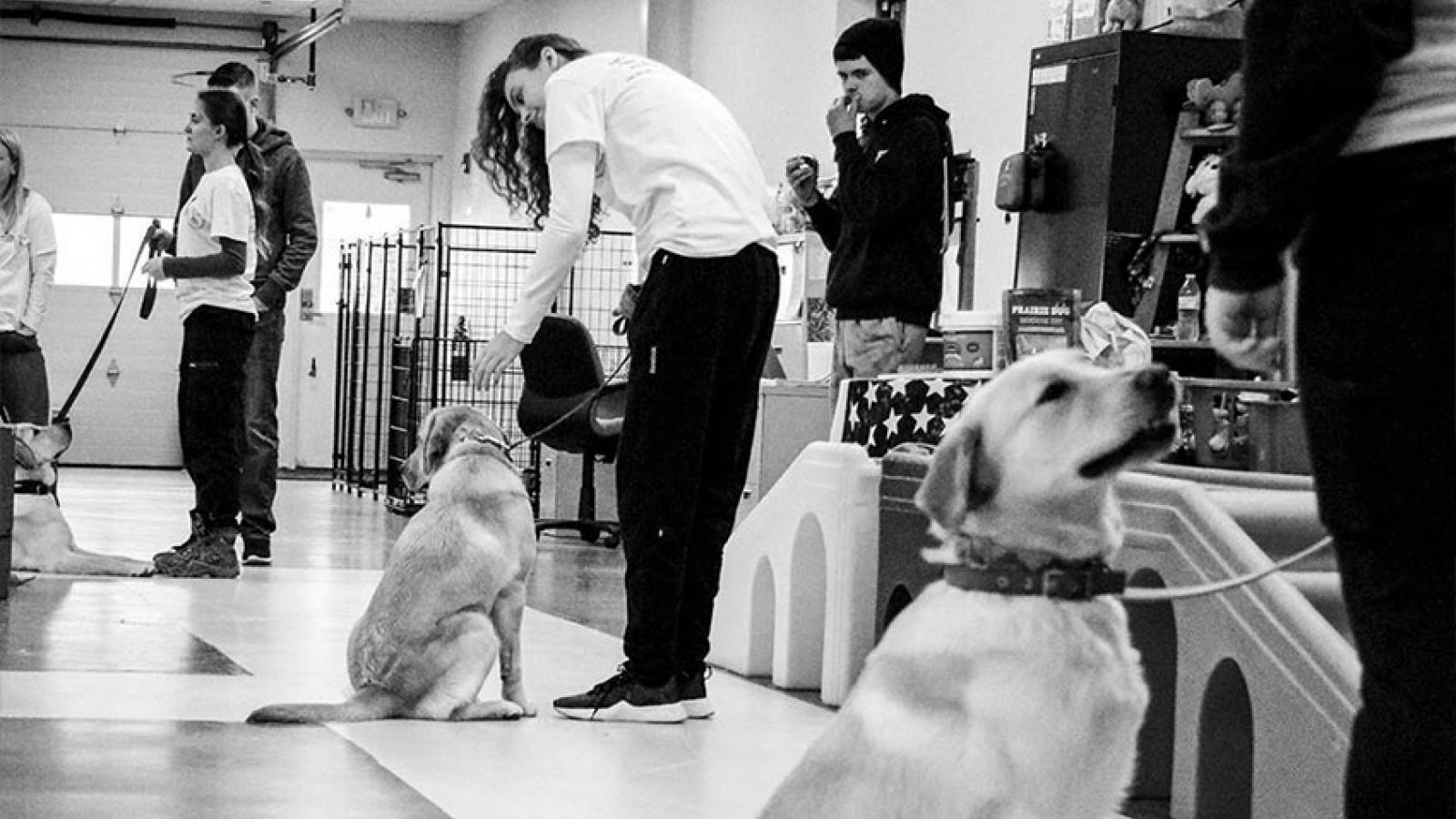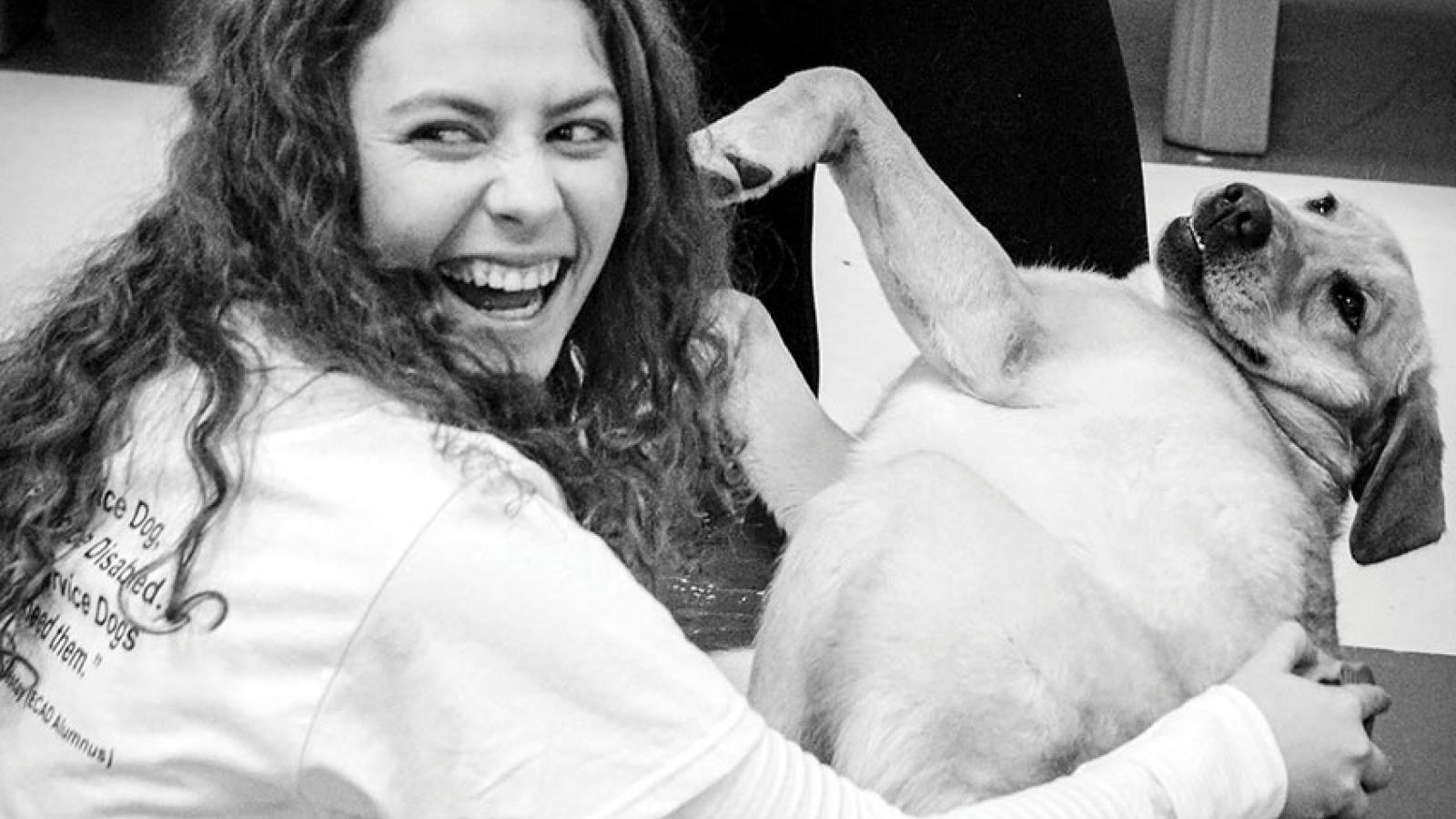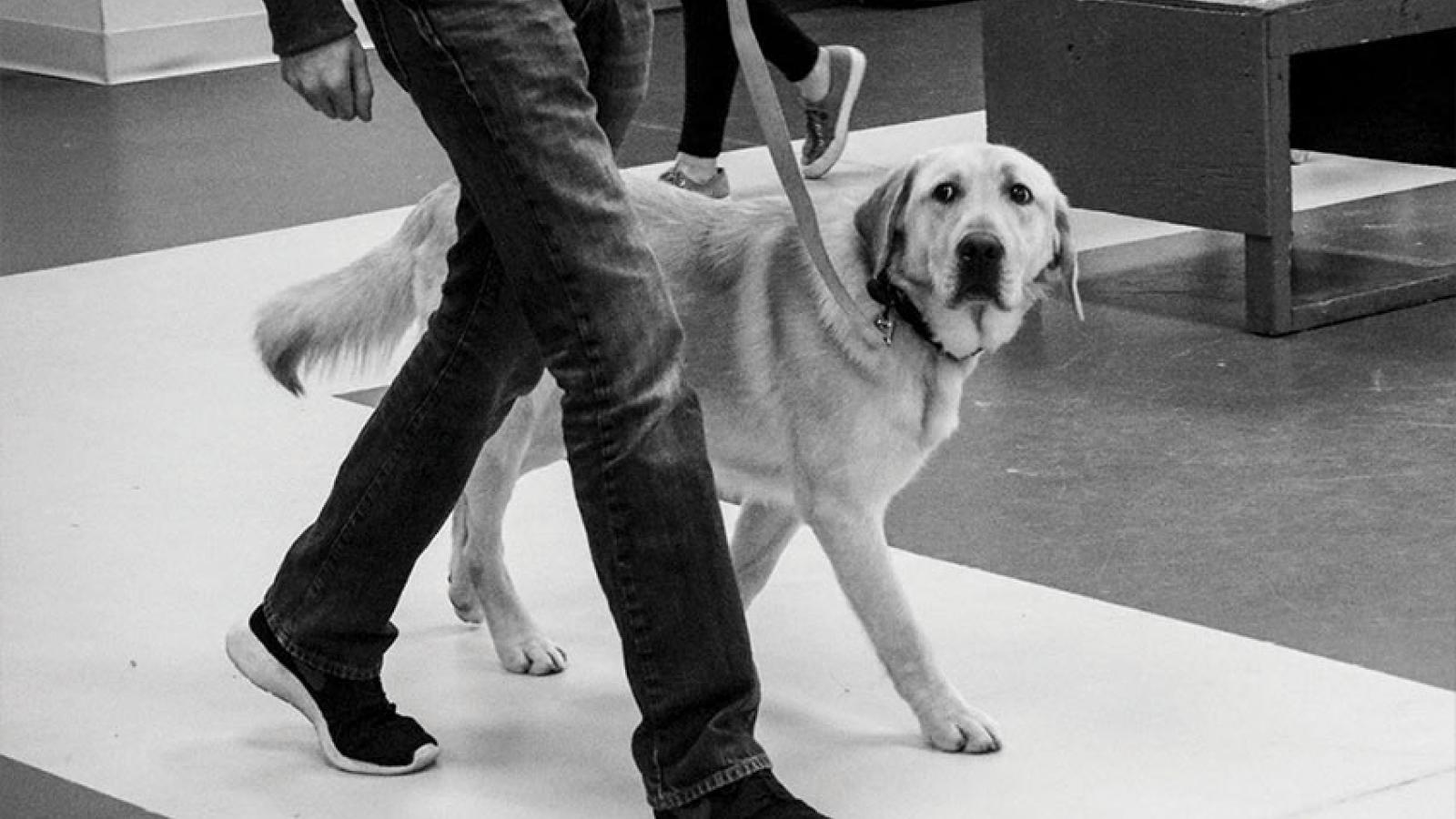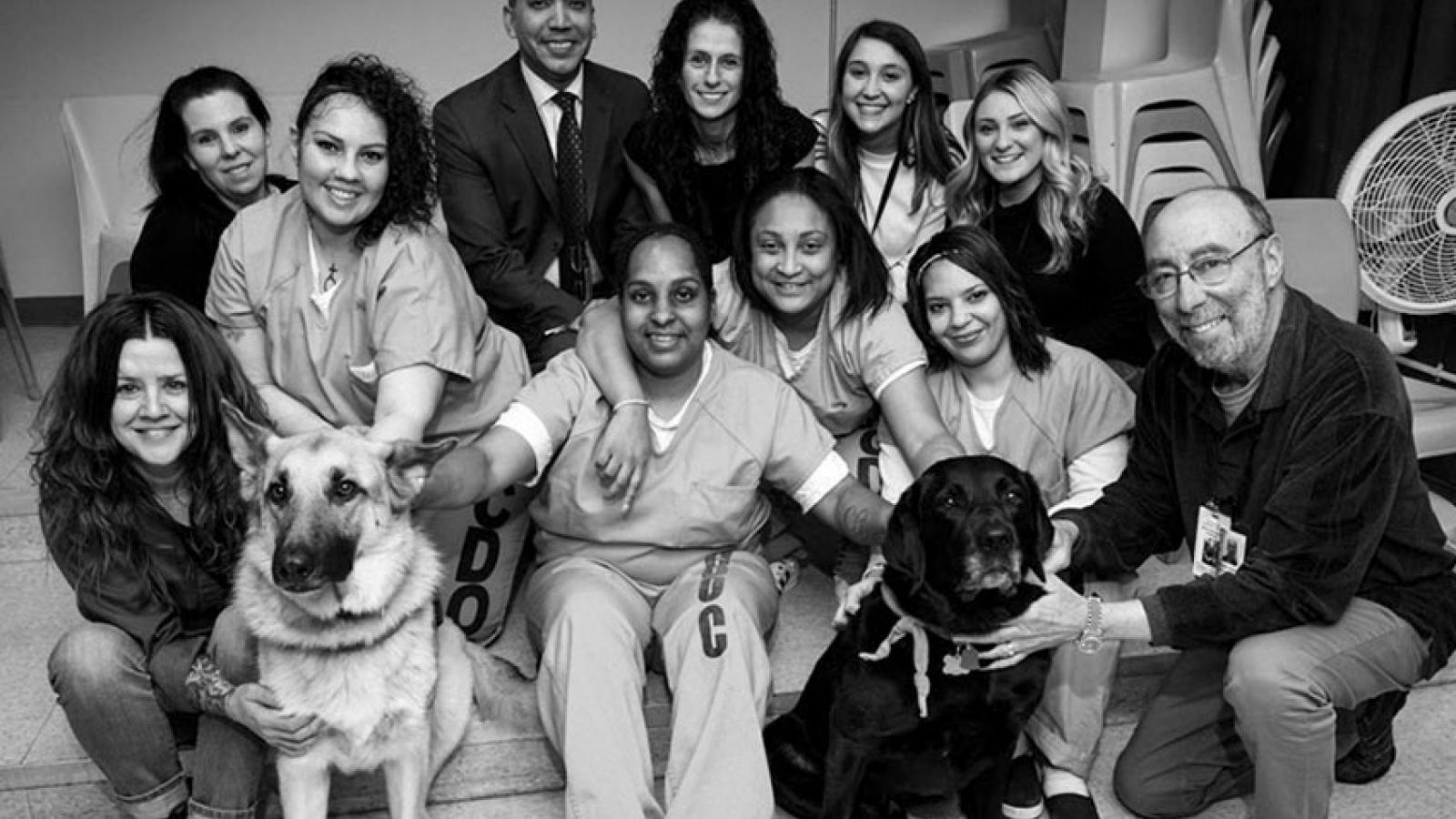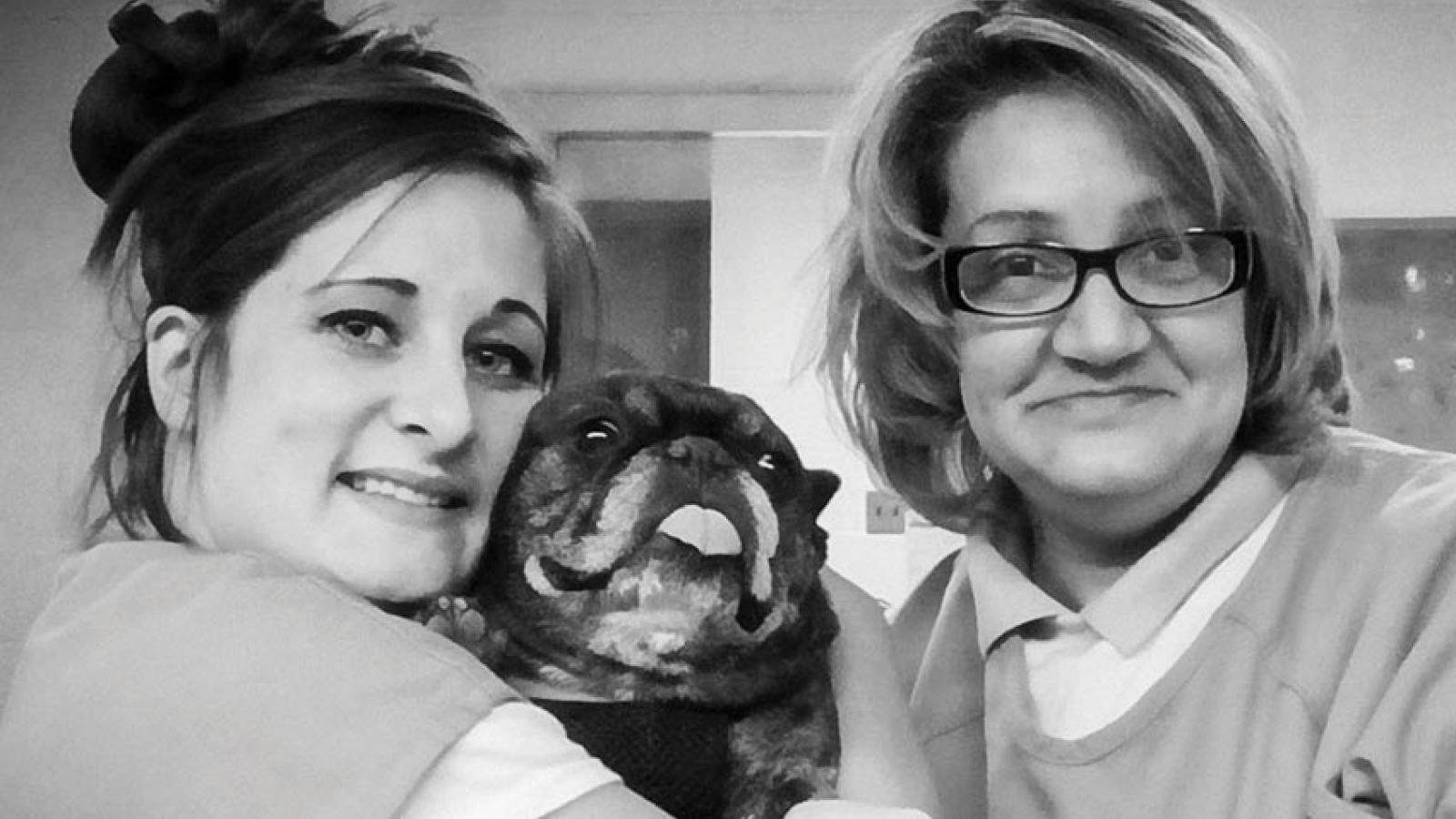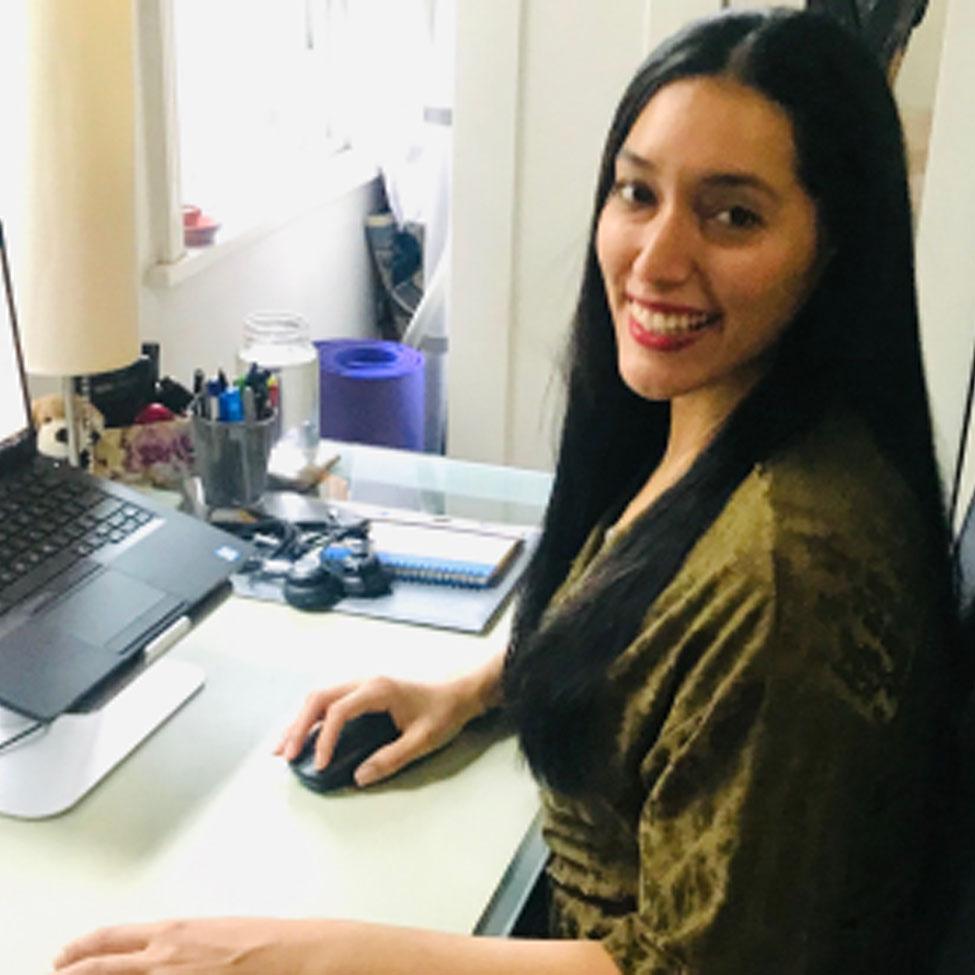
President Krislov: Class Of 2020 Defined By Its Resilience
Pace University Cheers Graduates in Virtual Celebrations
In-person celebrations to take place when public health guidelines allow
NEW YORK (May 20, 2020) – Thousands of Pace University graduates, their families, and friends gathered online on Wednesday to recognize the accomplishments and successes of the Class of 2020 in a virtual celebration.
The cyber-festivities are by no means a replacement for the traditional pomp and circumstance of in-person Commencement ceremonies, which will take place at a future date, but rather an opportunity for people to come together from near and far to recognize all of the hard work, dedication and long hours of study that so many have completed in order to earn their college or advanced degree.
“You have earned your diplomas through intelligence, persistence, determination and especially, resilience,” Pace University President Marvin Krislov told the graduates. “You’ve excelled in the classrooms, in your labs, jobs, internships, practica, service, performance, and you’ve made friends and mentors in this extraordinary community we call Pace University. I am so happy for all you have achieved and I am so excited to see the future ahead of you.” (Timestamp: 1 hour)
This year a total of 3,624 students are part of the graduating class of 2020, which includes 1,394 New York City students and 713 students in Pleasantville. Additionally, there are 1,517 graduate students across its campuses. At Pace University’s Elisabeth Haub School of Law, they celebrated their virtual ceremony on Sunday when 185 Juris Doctor degrees were conferred, as well as 35 Master of Laws degrees and two Doctor of Science in Environmental Law degrees.
“Because of the pandemic, we will be graduating into a world completely different from the world we knew when we were in college, but I know we’re prepared because for the past four years, we’ve learned how to get grit,” New York City student Heather Farley of the Lubin School of Business at Pace Universitysaid. “For our entire college career, we’ve learned how to persevere when times get tough.” (Timestamp: 45 minutes)
Pleasantville student Brent Cameron of the Dyson College of Arts and Sciences called on his fellow graduates to achieve their goals regardless of the pandemic: “So for those of you who want to be teachers, go out there and teach people to think. Those of you who want to be doctors and nurses, go out there and make people well. For those of you that want to be writers, go out there and write the stories that will change this world. Go out and make those dreams real, because this pandemic will end, and life will continue.” (Timestamp: 54 minutes)
Historically, Pace has been a university where so many graduates have earned degrees and gone onto professional success. It’s one of the many reasons that Pace is ranked number one in upward economic mobility among four-year private universities according to a study conducted by Harvard University’s Opportunity Insights.
Pace University Provost, Vanya Quiñones, PhD, said: “You’re graduating today because of your resilience and your perseverance, your ability to succeed in extraordinary times. This is in part is what Pace teaches. I am proud of you for remaining focused and finishing strong. I know that it will continue to pay off.” (Timestamp: 1 hour 9 minutes)
About Pace University
Pace University has a proud history of preparing its diverse student body for a lifetime of professional success as a result of its unique program that combines rigorous academics and real-world experiences. Pace is ranked the #1 private, four-year college in the nation for upward economic mobility by Harvard University’s Opportunity Insights, evidence of the transformative education the University provides. From its beginnings as an accounting school in 1906, Pace has grown to three campuses, enrolling 13,000 students in bachelor’s, master’s, and doctoral programs in more than 150 majors and programs, across a range of disciplines: arts, sciences, business, health care, technology, law, education, and more. The university also has one of the most competitive performing arts programs in the country. Pace has a signature, newly renovated campus in New York City, located in the heart of vibrant Lower Manhattan, next to Wall Street and City Hall, and two campuses in Westchester County, New York: a 200-acre picturesque Pleasantville Campus and the Elisabeth Haub School of Law in White Plains.
Cultivating Connections and Collaboration
Meet Massiel Ubillus Rivera '20, an international student from Peru who came to Pace University in pursuit of an MBA in Strategy and International Business to develop her strategic thinking skills and move her career to the next level.
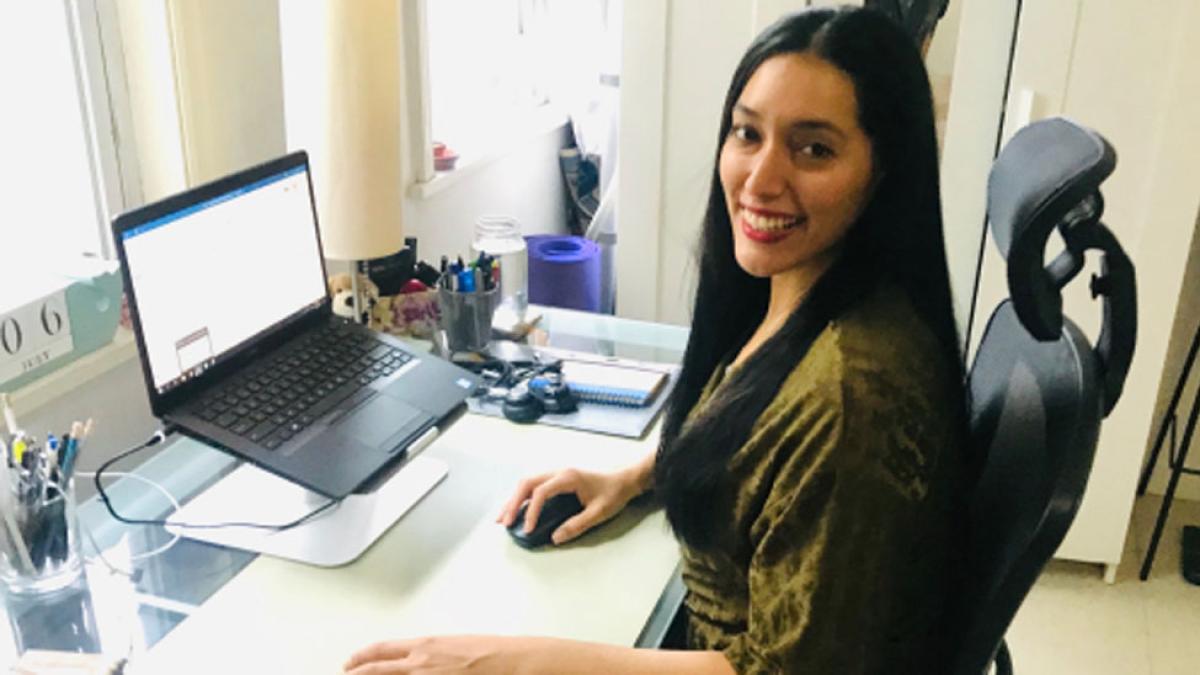
Massiel Ubillus Rivera
Senior Business Operations Associate, Dialectica
Class of 2020
MBA in Strategy and International Business
Member Of: Lubin Women in Leadership, Graduate Finance Club, Lubin Graduate Marketing Club

Meet Massiel, an international student from Peru who came to Pace University in pursuit of a degree that would allow her to develop her strategic thinking skills and move her career to the next level. With a background in healthcare and non-profit, Massiel has taken advantage of opportunities at Lubin to expand her knowledge base. This is how she landed a coveted internship at American Express. We talked to Massiel about her journey and most cherished experiences at Pace as she gets ready to graduate at the end of the Fall 2020 semester.
You came to Pace in pursuit of your second master's degree. Why did you choose Pace for your MBA?
There's a lot of things to consider when pursuing a second master's degree. I chose Pace because I felt like it was a great fit for me. Pace's focus on upward mobility, its location, and reputation were key factors in my decision. Pace made me feel like I could go places and achieve great things. When I visited the campus for the first time, I instantly felt like everyone was very welcoming, and I really liked that. I feel a great sense of belonging and never feel like I am just another student here!
Pace made me feel like I could go places and achieve great things. When I visited the campus for the first time, I instantly felt like everyone was very welcoming, and I really liked that. I feel a great sense of belonging and never feel like I am just another student here!
Tell us about your experiences at Lubin. What resources have you been using?
I've had an amazing experience at Lubin so far. With my previous master's degree program, I was more focused on work and didn't make the time to be involved on campus, nor did I get to know my peers, faculty, and staff. That is why starting from my first semester at Pace I really made it my mission to be more involved on campus. Right away I became a graduate assistant. This opportunity allowed me to work closely with professors such as the Finance Department Graduate Program Chair, Dr. P.V Viswanath and the Director of the Hospitality and Tourism Management Program, Dr. Claudia Green. I have also worked as a graduate assistant in the Office of Communications and External Relations and the Office of Graduate Advisement and Student Development at Lubin. In addition to being a graduate assistant, I've also joined student organizations and held leadership positions within Lubin Women in Leadership, which truly enriched my MBA education. Lastly, I took advantage of the Janetschek Professional Growth Fund to complete a professional training certification program in Excel and financial modeling.
This past summer, you secured a coveted internship at American Express in their Global Treasury department. Tell us about that experience. What did you learn at American Express and how will you apply what you have learned to your future endeavors?
Working at American Express was a very challenging, but rewarding experience. Due to COVID-19, the internship was shortened from ten weeks to six weeks, and it was fully virtual. I was prepared to give it my all and learn as much as I could about finance and working in a corporate setting. My background is in healthcare and the non-profit sector, so this was my first time working for such a big company. In addition to understanding financial services and developing my technical skills, I learned a lot about myself, which is something I didn't expect. I learned how I work best and was able to understand my strengths, weaknesses, and preferences. I also had the opportunity to virtually connect with many colleagues all across the organization, which enhanced my networking skills. I now feel extremely comfortable building a quick rapport with anyone! This will prove to be very beneficial in our new virtual reality.
You have been very involved on campus as a student leader and as a member of many of our graduate student organizations. What is your favorite memory participating in student life activities?
As part of Lubin Women in Leadership (LWL), I loved getting to know other student leaders and organization members during our weekly meetings. We got to share our experiences and I felt like I had a network of fellow students I could count on. I also attended many student events such as a Diwali event coordinated by the Pace Indian Student Association (PISA). Further, I attended incredible lectures hosted by the Graduate Finance Club, visited the UN and Federal Reserve Bank of New York, and attended a very useful data visualization workshop featuring Dr. Vishal Lala, which was hosted by the Lubin Graduate Marketing Society (LGMS). There were a number of other activities in which I was able to engage as well. One of my favorite memories was attending a salary negotiations workshop featuring Dr. Katherine Richardson; it was very eye-opening, fun, and extremely useful!
What advice do you have for incoming students in our MBA program?
That saying that you keep hearing is true: Get involved! I would also add: get involved as soon as possible! I think it's very important to get good grades, but it is equally important to get to know Lubin and everyone who participates in making the school a great business school. You never know what opportunities may arise from cultivating your connections!
What does #LubinLife mean to you?
To me, #LubinLife is being fully immersed in Lubin. I love the idea of being myself and bringing my best self to my classes, but also to my interactions with peers, faculty, and staff. We have a very collaborative culture at Lubin with people from all walks of life and backgrounds from whom we all can learn.
Remoting In
Dyson students and faculty are finding ways to stay connected and engaged in teaching and learning—from a distance.
Dyson students and faculty are finding ways to stay connected and engaged in teaching and learning—from a distance.
Since March 11, 2020, when Pace University moved to remote learning as a result of the Coronavirus pandemic, students and faculty have been finding ways to adjust.
“I am very proud of the way Dyson’s faculty and students have quickly adapted to the new normal of remote teaching and learning during what is surely a trying time for many,” says Dean Nira Herrmann, Dyson College of Arts and Sciences. “It’s a demonstration of our students’ commitment to their education and of our faculty’s dedication to creative solutions that work.”
How have they replicated the hands-on aspects of liberal arts learning such as science labs and performing arts classes? What about the fact that for many students struggling with financial concerns and upended living arrangements, academics may not be top-of-mind? Here’s a closer look.
Biology
“Flexibility and an awareness that, over time, things are going to change, that’s the message I’m [sending],” said Professor Marcy Kelly, chair of the Biology Department in New York City.
She has replaced her traditional instruction with a blend of online tasks and shorter meetings via the Zoom virtual conferencing platform, which includes breakout time for students to meet in smaller virtual groups. Online assignments and review have been organized around the digital platform established in conjunction with the course textbook, and a series of videos that Kelly has curated.
Reconfiguring her courses has taken some time, and Kelly hopes her effort will make completing the classes feasible for all of her students, all of whom are dealing with varying circumstances, some in different time zones. To that end, she has also created a to-do list for each week, and gives students options when it comes to working on assignments together. If it’s not practical for them to work via Zoom, they can choose to collaborate via shared files.
“I don’t think [synchronous instruction—requiring students to meet together at a specific time for a set duration—] is a great idea,” said Kelly. “Literature suggests that doing the typical lecture-style isn’t really pedagogically ideal online.”
My goal is to make [students] feel like they just left lab.
Like Kelly, Antonio Herrera is also focused on meeting students where they are. A lecturer in the Biology Department on the New York City campus, he has one big objective for his lab class of mostly first-year students.
That means finding new ways for students to work together and engage with each other, the way they normally would. To enable opportunities for remote interaction, Herrera is also using the breakout room functionality on the Zoom platform, but instead of permitting students to work in their previously assigned lab partner arrangements, he’s randomly assigning them to the virtual groups. This has allowed students who might not have associated in person to collaborate, and Herrera says students are enthusiastic about the approach; in some cases, they’re staying on the video conference calls and continuing to work even after the session was scheduled to end.
Herrera and his students are also exploring resources available through JoVE, the Journal of Visual Experimentation. Newly accessible content includes high-quality video of experiments and lab techniques.
“Many things that I thought were impossible to conduct remotely in a lab became a reality,” said Khaela Gardner ’22, Biology. “This includes completing assignments which require us to measure specimens and examine them on a microscope and in this way it makes it feel exactly like an in-person lab course.”
As much as they’re hoping any kind of schoolwork provides a diversion from the stress and anxiety caused by the coronavirus, both Herrera and Kelly have also been engaging students by focusing on the pandemic. Kelly has set up a viewing party featuring the 2011 film Contagion, by Oscar-winning filmmaker Steven Soderbergh (Ocean's Eleven films, Traffic), and students in Herrera’s Biology and Contemporary Society lab course are creating an array of four infographics designed to clearly present basic information several underlying aspects of COVID-19.
“The goal is to give them the opportunity to do something about COVID-19, and to give themselves answers as they have a great many questions,” said Herrera.
Communication Studies
When it comes to his students’ wellbeing, Melvin Williams, an assistant professor in the Communication Studies Department, is leading by example.
Williams, who teaches both general and upper-division courses, started by hosting a Zoom meeting to find out what his students needed and wanted out of a remote experience. Conversation included a frank discussion of students’ new normal, and he acknowledged the grief that many may be feeling over the loss of those moments that define the college experience, such as senior year memories, honor society inductions, and social gatherings.
I called the New York COVID-19 Mental Health Hotline, told my students about the experience, and urged them to do the same, if needed. I want them to know that we can, and will, heal together.
Williams’s coursework now includes recorded lectures that are accessible to all students on-demand, regardless of time zone differences and technology challenges. Additionally, he uploads weekly “Happy Friday” encouragement videos to applaud his students for their academic progress and tenacity.
“The current situation empowered me to learn more about Blackboard and Zoom's various functions,” said Williams, who previously had taught hybrid courses mixing face-to-face and online instruction. “Instead of panicking, I chose to engage this moment as professional development, as I reassessed how I can better leverage online resources in my course instruction.”
Art
It doesn’t get much more hands-on than a studio art class, so Eve Laramée, a professor in the Art Department and director of the Center for the Arts, Society and Ecology, was somewhat surprised to find that the abrupt transition to remote learning was fairly seamless. Laramée has been using a full range of tools including Blackboard, email, online videos, video tutorials, short films, and LinkedIn Learning, while also giving some instruction during regular class time and holding remote office hours at her regular time.
She makes exceptions for those who are far away—one student is in Kuwait and another is in India—and has modified project assignments as well.
“Students upload or email photographs of works in progress so I can provide ongoing feedback, and then upload finished works in the form of photographs to Blackboard, or email them to me, or both,” said Laramée.
This provides regular structure for all of us, and that helps keep things feeling ‘normal.’
She has also provided lists of alternative materials for those who do not have access to their regular art supplies, and encourages all of her students to use their art as a way to destress and to process everything that’s going on. She suggests that they try listening to music while creating their projects for class, and has modified assignments, giving students the option to address COVID-19 in their work.
“The assignments I give and the students’ responses are all about meaningfulness, because that’s what art is, creating meaning for culture and society,” said Laramée.
Most importantly, she’s remaining conscious of the fact that her students may still face various challenges, in spite of her best efforts.
“I’m communicating frequently with the students who are having difficulty moving to online learning due to their lack of access to a computer, lack of digital skills, or those learners who are more kinetic learners, kinesthetic learners, or right-brain dominant intuitive learners,” said Laramée.
Dyson Scholars in Residence
What does remote education look like for the Dyson Scholars in Residence (DSIR) program, built around the very idea of living and learning together?
“We have always had a robust use of our Blackboard site for submission of any student work, so that continues for the academic [portion] of the class,” said Associate Professor of English Jane Collins, DSIR’s program creator. “Our greatest challenge was finding a way to continue our service project for the Successful Learning Center (SLC) [a community program providing a college experience for alternative learners and students with developmental disabilities].”
In our first [virtual] class together, the [SLC] students made short films that consisted of monologues which, when connected together, created a story. All of it was improvised; the DSIR students took the assignment I gave them and made it work.
At its final in-person meeting, the class committed to continuing to serve the SLC students until the end of the semester as planned, and began brainstorming virtual projects and ways to connect via Zoom.
A big part of the partnership between the Dyson College students and SLC is providing mentorship and friendship, and Collins says she believes that aspect has been retained even in a virtual format.
“Seeing the kids from the SLC program smile on the screen makes me happy, like I did something productive during my day by making someone else's a little better,” said Austin Duffy ’22, Digital Cinema and Filmmaking.”
Pace Performing Arts
When the spring 2020 semester began, students taking Pace Performing Arts’ PAGE 273: Theater of the Oppressed course planned on completing a service learning project with Falconworks Theater Company, in the Red Hook neighborhood of Brooklyn, New York. That changed when Pace transitioned to remote learning and social distancing became the norm, but Reginald Flowers, the adjunct faculty member who teaches the class, moved quickly to find an alternative. Working with the “Calling Saves Lives” initiative, students are contacting members of at-risk communities in Red Hook to check in and assess needs. This includes asking basic questions about individuals in the household to determine specific risks or concerns during the shelter at home period.
“The ‘Calling Saves Lives’ initiative brings a web platform together with volunteers to track their progress as they deliver survey questions to members of at-risk communities. The data is delivered to city agencies responsible for intervening on the public’s behalf,” said Flowers. “It will also create a rewarding opportunity to the students and contribute to their own wellbeing by giving them a purpose during this trying period.”
Falconworks ran a similar program following Hurricane Sandy in 2012, and at that time, the class worked with Carlos Menchaca (D-District 38), who was elected to the New York City Council in 2013. Menchaca connected Falconworks with community organizer Carlos Jesus (CJ) Calzadilla, who was in the planning stage of the Calling Saves Lives program, said Flowers.
Environmental Studies and Science
During this time of stay-at-home, we’re all getting an opportunity to experience our personal environments perhaps more than we’d like. Department of Environmental Studies and Science Clinical Associate Professor Michael J. Rubbo, who is teaching ENV 344: Habitats of the Hudson Valley, had to find a way to give students the experience they expected with the field-based course.
I take the students out weekly to visit habitats throughout the region to assess their condition, so going remote presented a challenge. To address this, I have weekly Zoom lectures with the class and have created virtual field visits instead of in-person trips.
He has gone out alone to the various natural locations and created his own videos, which students watch and answer follow-up questions via Blackboard. “I’m no David Attenborough, but when life gives you lemons…” said Rubbo.
Editor's Note: Dyson College and response to COVID-19 remains an ongoing story. If you'd like to share information for any future updates, please email us at dysonnews@pace.edu.
Dyson Fights Back
The coronavirus pandemic came on fast, and the Dyson community has responded.
By definition, a liberal arts education prepares students to be flexible, think outside the box, and to see issues from a variety of perspectives. As the world battles the ongoing coronavirus pandemic, the Dyson College community has turned to those characteristics to help in the fight. Here are a few of the ways that students, faculty, and alumni are contributing to ongoing relief and support efforts.
Procuring PPE
Across the nation, one of the biggest challenges of the pandemic has been the severe shortage of personal protective equipment (PPE), which threatens our ability to save lives and reduce the impact of the virus.
To safeguard healthcare professionals on the front lines, Pace University’s College of Health Professions and Dyson College have donated more than 15,000 gloves, 250 standard face masks, more than 60 N95 masks, and nearly 50 disposable gown kits to the Westchester Medical Center and New York State.
“Healthcare workers are literally putting their lives on the line to help patients with COVID-19,” said Professor Marcy Kelly, chairperson of the Biology Department on the New York City campus, “If [they] do not have PPE, they will most likely catch the virus. The more healthcare workers who are sick, the greater the impact on our ability to treat patients and keep the mortality rate down.”
Yutong Fan ’20, a returning student from China who is attending Pace to fulfill prerequisite courses for dental school, has also coordinated a separate donation of N95 masks, surgical masks, and gloves. She was able to secure several small shipments from family and friends in the medical field back home, and on arrival, the supplies will be disseminated to medical staff at several local nursing homes.
“As a resident of New York, I want to support my neighborhood and my city,” said Fan. “My family members in China worked at the frontline helping patients…I cannot imagine them working without proper protections. I fear for the medical personnel in New York as well as their families…I just want to do whatever I can to give them the protection they deserve.”
Standing on the Front Line
Dr. James Gasperino ’89, is one of the many physicians, nurses and healthcare professionals who are emerging as heroes. Dr. Gasperino is chair, Department of Medicine; vice president for Critical Care, Perioperative, and Hospital Medicine; and associate chief medical officer at the Brooklyn Hospital Center, and where intense struggles have been chronicled by The New York Times.
“We’re doing this because the alternative is death,” Gasperino told the paper in an April 4, 2020 article titled “‘Code Blue’: A Brooklyn I.C.U. Fights for Each Life in a Coronavirus Surge.” He was referring to his team’s efforts to create protocols for how to share ventilators between patients, a precarious idea that clearly illustrates the desperate situation at his hospital and many others.
Shaping Policy
Another major issue in the COVID-19 pandemic is the lack of clear strategic policy. As president and chief executive of Vital Strategies, José Luis Castro ’88 is working to change that. Vital Strategies is a leading global public health organization founded to develop effective solutions to major challenges for rapid, large-scale impact.
The organization has mobilized into an incident command structure (led by the Prevent Epidemics team) and partnered with the World Health Organization and Bloomberg Philanthropies in a new $40 million initiative to support global response to the pandemic focusing on Africa and vulnerable lower-income regions.
“We will strengthen systems and drive COVID-19 response with data, science and evidence to save lives,” said Castro, a member of the Dyson College Advisory Board. “Learning and knowledge management is an integral part of our response work, and the lessons learned from COVID-19 will be shared widely in hopes to prevent the next pandemic.”
Providing Information
As the world shuts in, a number of Dyson College alumni are out keeping the rest of us informed, including CNN business and politics correspondent Cristina Alesci ’01, Charles (Charlie) Gasparino ’85, a senior correspondent for Fox Business Network, and News12 reporter Blaise Gomez, ’06, who said she and her colleagues have received an influx of viewers seeking help and wanting to share their stories.
“This crisis is unlike anything I’ve covered in my 13-year career as a journalist in the Hudson Valley,” said Gomez. “Of course, there are always stories that hit close to home, but this is something that we are all experiencing together. That said, I enjoy helping people and giving them a voice they’d otherwise not have. That hasn’t changed during this crisis, and now, more than ever, that job is my duty.”
Inspiring Joy and Hope
While the news media provides the facts and straight talk, others from the Dyson community are working to spread joy.
As reported in The New York Times, aspiring lighting designerMatt Carino ’20, Production and Design for Stage and Screen, used his skills to create a lighted lawn display with the words “Together, Apart” at his family home in Montclair, New Jersey.
“I wanted to send a simple, strong and positive message to the community,” Carino told the paper. “This pandemic is really hitting people hard, from having to work remotely, schools being canceled, and businesses being closed or limited.”
His work is part of a worldwide movement to spark happiness during this dark time with holiday lights.
On-air radio personality Anna Zap (Zapotosky) ’02, co-host of The Anna and Raven Show on Connoisseur Media’s Star 99.9 Connecticut and Walk 97.5 Long Island, says her job during the crisis is to balance providing information while still being entertaining and supportive of advertisers who may be struggling. To that end, Zap and her co-host have devoted more time to communicating via social media and interacting directly with the audience in other ways. They organized Zumba and Rave events on Facebook, shared funny videos of their homes (now their remote studios), and hosted various forums. They have also started "Open for Business," a new daily segment featuring interviews with various advertising clients about how they’re adapting and how listeners can be supportive.
“We've received so many messages from listeners thanking us for providing normalcy, but the truth is that there isn't anything normal about what's happening right now,” said Zap. “What I've found is that in times of emergency...we need to work harder than ever to provide accurate info and familiarity, while staying true to our brand.”
Making Sense of it All
How do we deal with the stress of being shut in? In what ways will the pandemic shape our future? These are important questions, and Dyson faculty members are contributing their expertise to provide answers and help us process what’s happening. Professor of Psychology Sally Dickerson, Associate Professor of Psychology Anthony Mancini, and Clinical Assistant Professor of Economics Todd Yarbrough have all shared their varying perspectives on the pandemic and its implications via Medium.com.
- Read “Managing COVID-19 Stress” (Dickerson)
- Read “Potential Positives Amidst a Major Tragedy” (Mancini)
- Read “The Economic Fallout of COVID-19” (Yarbrough)
“In any crisis, each academic discipline has an important role to play by providing the social consciousness with the best available insights from their work. Psychologists can help us emotionally cope, literary scholars can help us appreciate themes that resonate during bleak times, and economists can assist with understanding the mechanisms of the economy,” said Yarborough. “Interdisciplinary understanding and togetherness are an incredibly powerful force, and I think any academic wants to be a part of that force for good.”
Editor's Note: Dyson College and response to COVID-19 remains an ongoing story. If you'd like to share information for any future updates, please email us at dysonnews@pace.edu.
Pace University’s Career Services Extends Help To Parents Affected By Coronavirus Epidemic
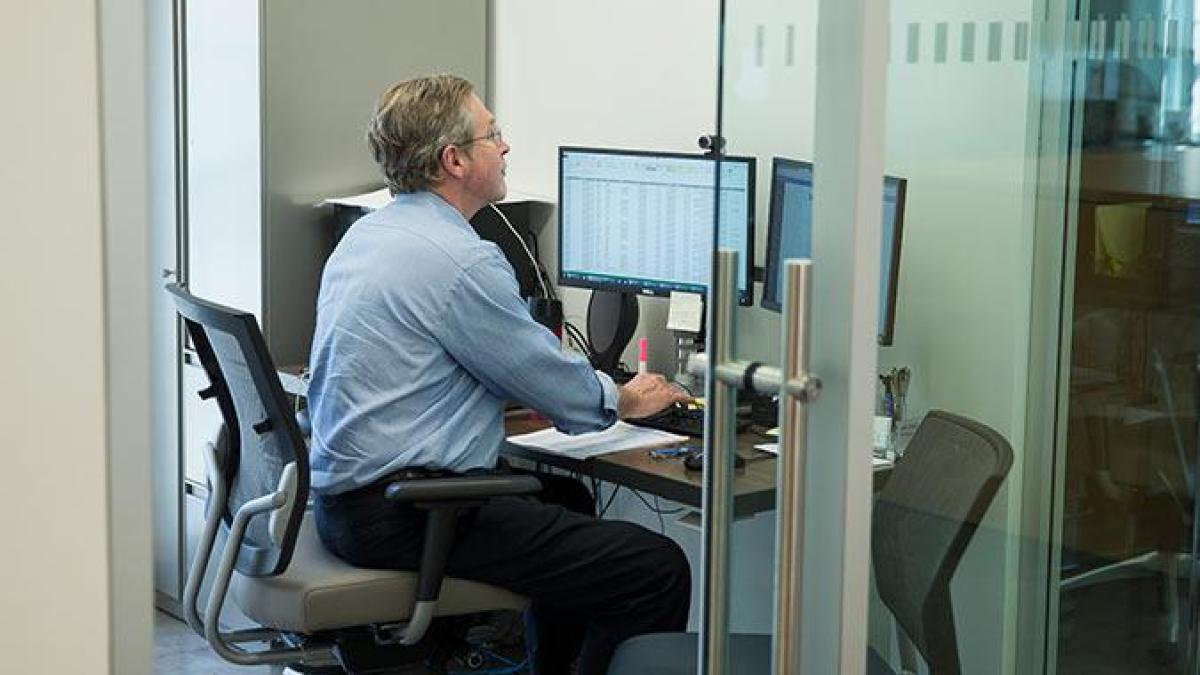
WESTCHESTER and NEW YORK, N.Y. (April 14, 2020) – Responding to the economic fallout from the global coronavirus pandemic that has wiped out jobs, decimated incomes and is threatening to push the economy into a recession, Pace University is now offering its career services resources to parents of students who have lost jobs, the University today announced.
In extending its full range of resources, relationships, recruitment and know-how to include parents adversely affected by economic fallout of this crisis, Pace’s department of Career Services stands ready to help families in need find employment.
“Pace has a long tradition of creating opportunities for our students,” said President Marvin Krislov. “In this uncertain time, we're very pleased to do the same for Pace families by extending Career Services placement expertise to parents of our students. We know that student success is directly tied to family stability, but, more important, it’s the right thing to do at a time when people need us most.”
In addition to providing career services to adults, Pace University is providing supplies for front-line health care workers, sending volunteers to much needed hospitals and medical centers in the region, and marshaling its resources to assist those who need help, Krislov noted.
This is the first time Pace Career Services is being offered beyond students and alumni population to include current parents. Historically, Pace has some of the strongest job placement outcomes among undergraduate and graduate students. It’s one of the many reasons that Pace is ranked number one in upward economic mobility among four-year private universities according to a study conducted by Harvard University’s Opportunity Insights.
“These past few weeks we learned that some of our students’ parents have lost their jobs. As career professionals we know too well the stress a person typically experiences when they lose work, even in the best of circumstances and economies. But to lose a job in the middle of a pandemic – the team is heartbroken to think how overwhelmed some of our students’ families must feel now” said Phyllis Mooney, executive director of Career Services at Pace University. “This is where we can, and are happy to help, no matter what kind of job a Pace parent is looking for. And we are just one confidential phone call or email away”.
Each year, hundreds of companies – everything from Fortune 500s and the major accounting firms to government agencies and small business -- actively recruit from Pace’s New York City and Pleasantville campuses. The department of Career Services, which each year brings more than 450 employers to its campuses through 12 career fairs and many other networking events, connects students to brand name companies in accounting, media and entertainment, nonprofits, health care, science and technology, and hospitality, among many others, is tapping into its traditional resources and contacts, and scouring job boards and online resources to help connect people with the right jobs.
Furthermore, Pace in 2019 had access to roughly 60,000 job and internship postings, of which Pace students completed 8,000+ internships, co-ops, practicums, field experiences – and the University expects that to grow in the coming years.
“From day one, students are introduced to Pace’s expert Career Services team and learn of our many career counseling services, including our robust calendar of employer events for that year,” Mooney said. “At Pace, we help all students no matter who they are, who they know, or what they are majoring in find their unique career path. In addition to introducing them to a huge roster of employers through our mega and ‘boutique’ fairs; we offer students individual appointments and workshops on everything from resume writing, building a professional brand, interview skills and salary negotiation. Now, we’re helping parents with those skills.”
To contact Pace’s department of Career Services, call (212) 346-1950 or email careers@pace.edu.
About Pace University
Pace University has a proud history of preparing its diverse student body for a lifetime of professional success as a result of its unique program that combines rigorous academics and real-world experiences. Pace is ranked the #1 private, four-year college in the nation for upward economic mobility by Harvard University’s Opportunity Insights, evidence of the transformative education the University provides. From its beginnings as an accounting school in 1906, Pace has grown to three campuses, enrolling 13,000 students in bachelor’s, master’s, and doctoral programs in more than 150 majors and programs, across a range of disciplines: arts, sciences, business, health care, technology, law, education, and more. The university also has one of the most competitive performing arts programs in the country. Pace has a signature, newly renovated campus in New York City, located in the heart of vibrant Lower Manhattan, next to Wall Street and City Hall, and two campuses in Westchester County, New York: a 200-acre picturesque Pleasantville Campus and a Law School in White Plains. Follow us on Twitter or on our news website.
Lessons from the Climate and Covid-19 Crises
In an article for The Hill, Professor Jason Czarnezki argues that the social and economic disruption caused by the coronavirus crisis also provides an opportunity to take bold action to defend ourselves against the climate crisis.
Must Love Dogs
How do dogs factor into learning? Find out here.
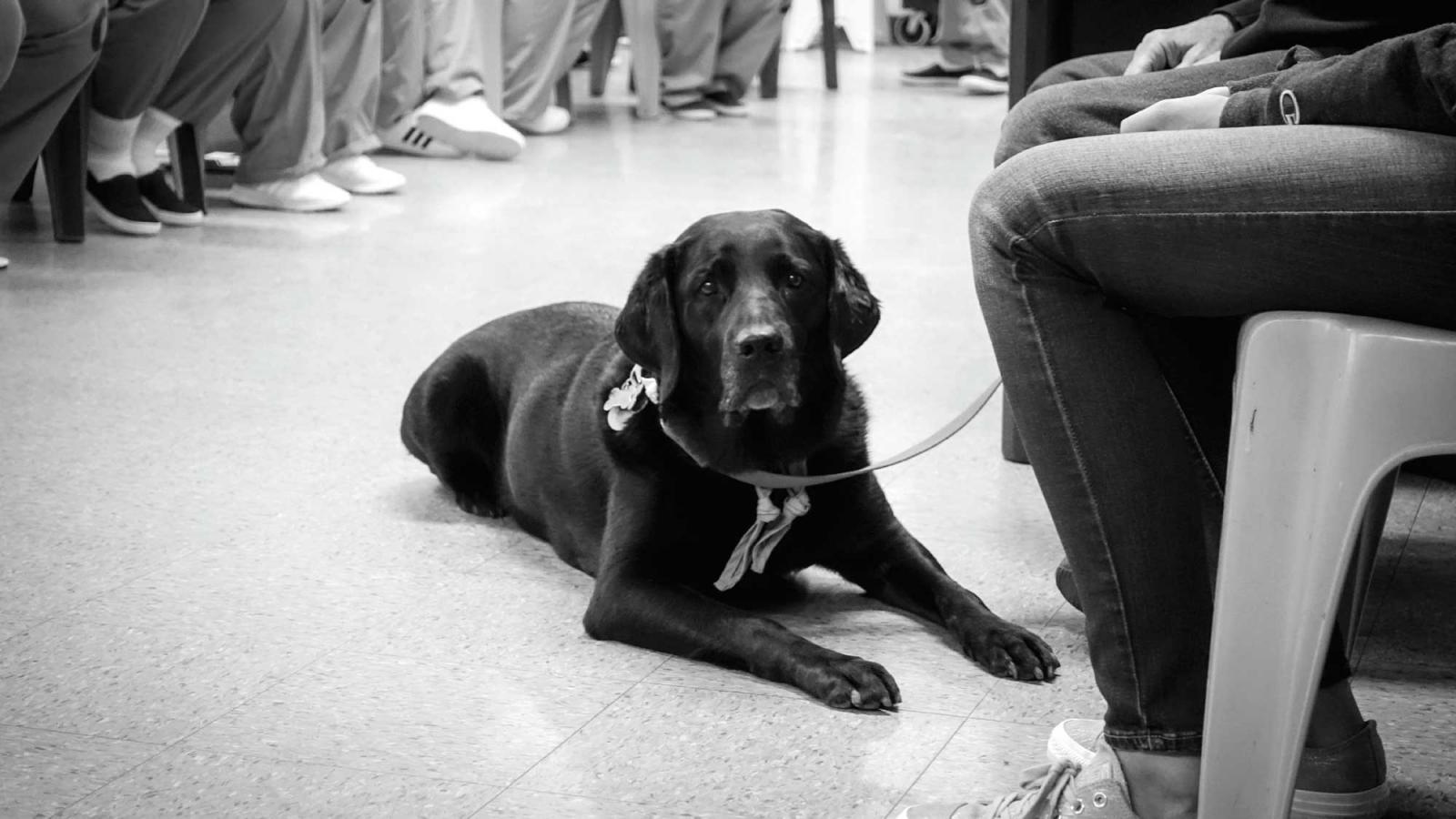
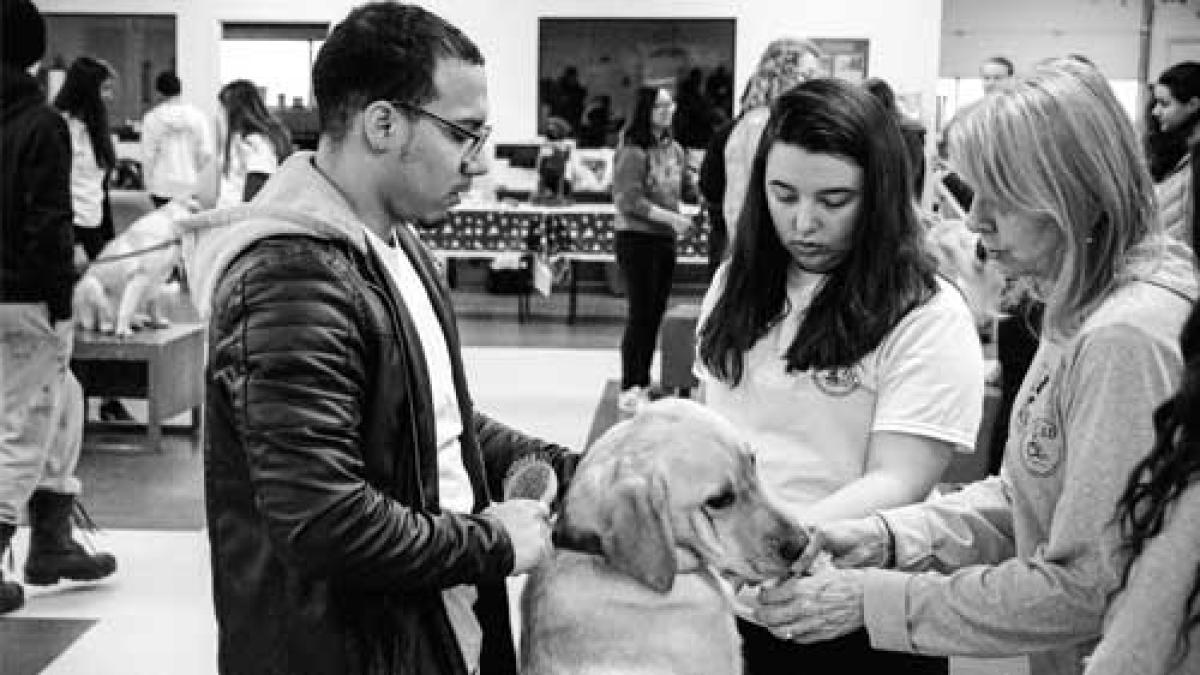
On a misty Saturday morning in February, College of Health Professions (CHP) Professor of Nursing Joanne Singleton, PhD; Pace’s service dog, Professor Spirit; and 25 CHP undergraduate students boarded a bus departing from Pace’s Pleasantville Campus. With coffees in hand, many students noted that while this 8:00 a.m. call-time was a departure from their traditional weekend sleep schedules, today was an exciting, special exception. The group was gearing up for a field visit to Educated Canines Assisting with Disabilities (ECAD), a nonprofit organization devoted to training service dogs who go on to be paired with individuals with disabilities.
The field trip to ECAD would be about a lot more than just playing with cute animals—although it would be a little bit of that, of course.
As the bus trudged down a foggy I-84E, Singleton began to discuss why an individual with a disability or a degenerative condition might benefit from a service dog—and from the perspective of a health care practitioner, the importance of adequately understanding the needs of individuals with service animals.
The First of Its Kind
For Singleton, her interest and subsequent educational activism surrounding service animals stems from a personal friendship. This thoughtful, inventive program was inspired by the late Luis Carlos Montalván, an Iraq War veteran whose life changed dramatically for the better after being paired with his service dog, Tuesday.
After hearing Montalván speak at a conference, Singleton realized there was a major gap between the level of care individuals with service dogs needed, and the level of care that most health care practitioners were able to provide—as the vast majority of nurses, doctors, and other health care practitioners have never been trained to treat individuals teamed with service animals.
In other words, she realized that health care practitioners should and could be doing better.
“As I listened to Luis, I realized, these health care providers he is talking about, this could me be!” said Singleton. “No one has ever taught me about this. As an educator, I have an opportunity to teach our health profession students about this, and make a real change.”
"As an educator, I have an opportunity to teach our health profession students about this, and make a real change.”
With the help of fellow CHP Professor Lucille Ferrara, EdD, she launched Canines Assisting in Health in 2017. It was the first college curriculum in the country of its kind, primarily dedicated to educating future health care professionals about the care of patients with disabilities who are—or may benefit from being—teamed with a service dog or those who participate in animal assisted therapies. This new curriculum focused on teaching students how to include service and therapy dogs in comprehensive care treatment plans.
Singleton became certified in the human-animal bond and animal-assisted interventions, and began thinking about what kinds of interventions could most positively affect veterans and other vulnerable populations. So she took her newfound knowledge, and applied it to effecting positive change on campus.
Educating Future Practitioners
The students descended the bus and headed into the ECAD facility—the main component of which consists of a spacious room designed specifically for service dog training. Through the guidance of ECAD co-founder Lu Picard, students were teamed up with service dogs in training, and engaged in a number of activities essential to both service dog care and training grooming, walking, and much more. Through this training—as well as a Paws & Breathe® session led by Singleton and Professor Spirit, a non-pharmalogical intervention where students assess their stress levels before and after snuggling and meditating with the Golden Retriever—students were better able to gain an understanding of the complexities and rewards surrounding service animals and health care.
Many students were surprised at the level of diligence required for proper service dog training and its unforeseen nuances—for instance, Picard stressed that service dog trainers should never, ever snap their fingers to gain a dog’s attention, as a disabled individual paired with a service dog may not have the ability to snap.
“At first, it was nerve-wracking to be thrown into the training,” said nursing student Caitlin Cullen ’22. “Overall, it was great to see the training process.”
Heading back to campus, students chatted animatedly amongst themselves—with many clearly finding the trip, as well as the larger initiative in which it is built around, both compelling and rewarding.
“Going into the health care field, it’s good to be aware of how to be appropriate and respectful of service dogs,” said Katherine Devaney ’22.
Parenting with Pups
While serving on the Community Corrections Advisory Board for Manhattan’s Metropolitan Correctional Center, Dyson Associate Professor of Criminal Justice Kimberly Collica-Cox, PhD, began to think about ways to implement rehabilitative programming that would benefit both incarcerated individuals and her criminal justice students.
After a number of fortuitous run-ins and countless hours of research, Collica-Cox and Dyson College, in conjunction with the Good Dog Foundation, started to lay the groundwork for what has ultimately become the groundbreaking Parenting, Prison, and Pups Program—an evidence based parenting program, which, through the use of therapy dogs and Pace students as teaching assistants, helps incarcerated women improve parenting skills and cope with the anxieties of parent-child separation.
Through this program, Collica-Cox and her criminal justice students visit the Manhattan Correctional Center and the Westchester County Department of Correction, and over the course of 14 sessions engage in animal-assisted simulations and training programs. Given that about 1.7 million children nationwide have a mother in jail or in prison, Collica-Cox believes that the strategies taught through this program can help enhance bonds between inmates and their children, reduce recidivism, and mitigate repetitive negative parenting patterns. On the undergraduate end, the course helps criminal justice students understand the complexities of facility management and the types of beneficial rehabilitative programs that are possible.
Wet Noses, Warm Hearts
“We use the dogs in two different ways. First, as an emotional support animal,” says Collica-Cox, which she notes can be quite important when individuals are disclosing personal information. Having the dogs be present with the women is a form of animal-assisted therapy. Petting the dogs, engaging with the dogs, and being present with the dogs has been shown to reduce stress, lessen anxiety, lower blood pressure and heart rate, and reduce the perceived feelings of loneliness.
“The other way is that we incorporate the dogs into actual curriculum lessons. If we were talking about things like problem-solving, we could use the dogs to start off with a problem. And then once they grasped the concept, moved to a more serious situation, like their children.”
“The dogs really help to open up lines of communication,” says Collica-Cox. “They serve as benign examples, and then we can get into deeper, emotional issues around parenting and children.”
For instance, if you are going on vacation—who will take care of your dog? If your dog is ill or eats a bad substance, how do you handle it? If your child keeps missing curfew, how do you respond? For one incarcerated mom, interviewed as part of a segment for News 12 Westchester, the opportunity to interact with therapy dogs like Fonzi, the admittedly handsome German Shepherd, gives her the space to talk about her children and her separation from them.
“Even though our children are not here, the class brings hope,” she said. “It brings all the mothers together.”
All in all, the program has been quite a success. Now entering its fourth year, it has received considerable regional and even national recognition. In 2018, Collica-Cox was awarded a prestigious national Jefferson Award for outstanding public service for her work.
Yet, arguably, the program’s real impact is exceedingly personal.
“The dogs really help to open up lines of communication,” says Collica-Cox. “They serve as benign examples, and then we can get into deeper, emotional issues around parenting and children.”
For one student, the experience of working with the Parenting, Prison, and Pups program was as much a class on humanity as it was civic engagement or criminal justice. “We got to see a population that is looked down upon, stigmatized, ridiculed,” he said. “But hearing [their stories] really hit me in the heart.”
Making an Impact
For both initiatives, there is still much to be done. One of Singleton’s long-term goals is to eventually affect policy, using evidence-based research to enter the insurance realm—and ask a forward-thinking insurance company to implement insurance support for individuals to be teamed with service dogs. And Collica-Cox hopes to gain further funding for the program so that it can continue to make a difference, and perhaps even expand.
Yet, while their work is ongoing, there’s no question that when it comes to animal-assisted therapy, Pace has both the bark and the bite to make a true impact.
See the Dogs at Work
Dreaming Big
“On any given day, my mom and dad might’ve been studying for an exam, attending parent-teacher conferences, or writing a research paper—all while working full-time and getting three meals on the table,” says Horace E. Anderson Jr., JD, the newly-appointed Dean of the Elisabeth Haub School of Law.
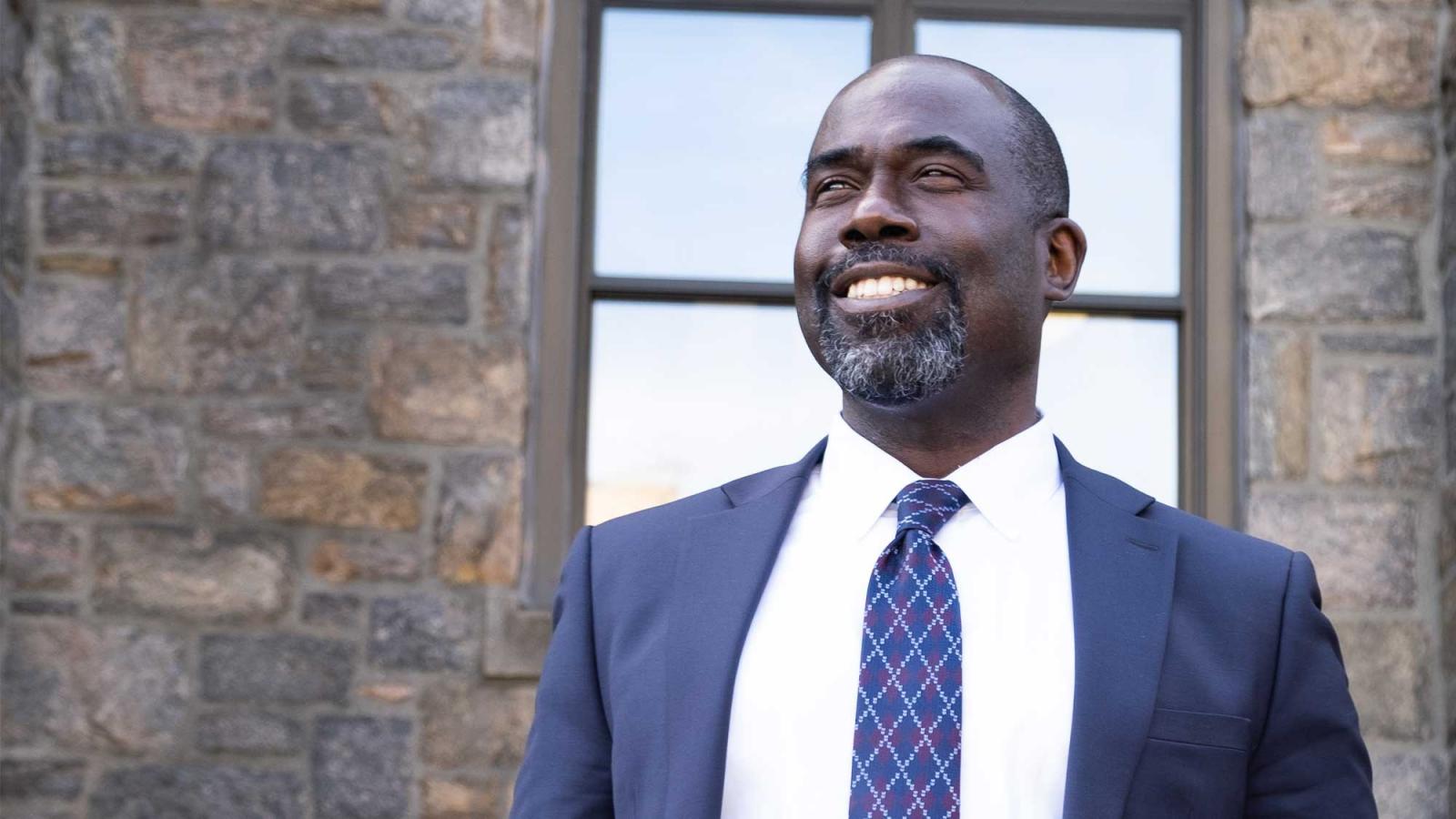
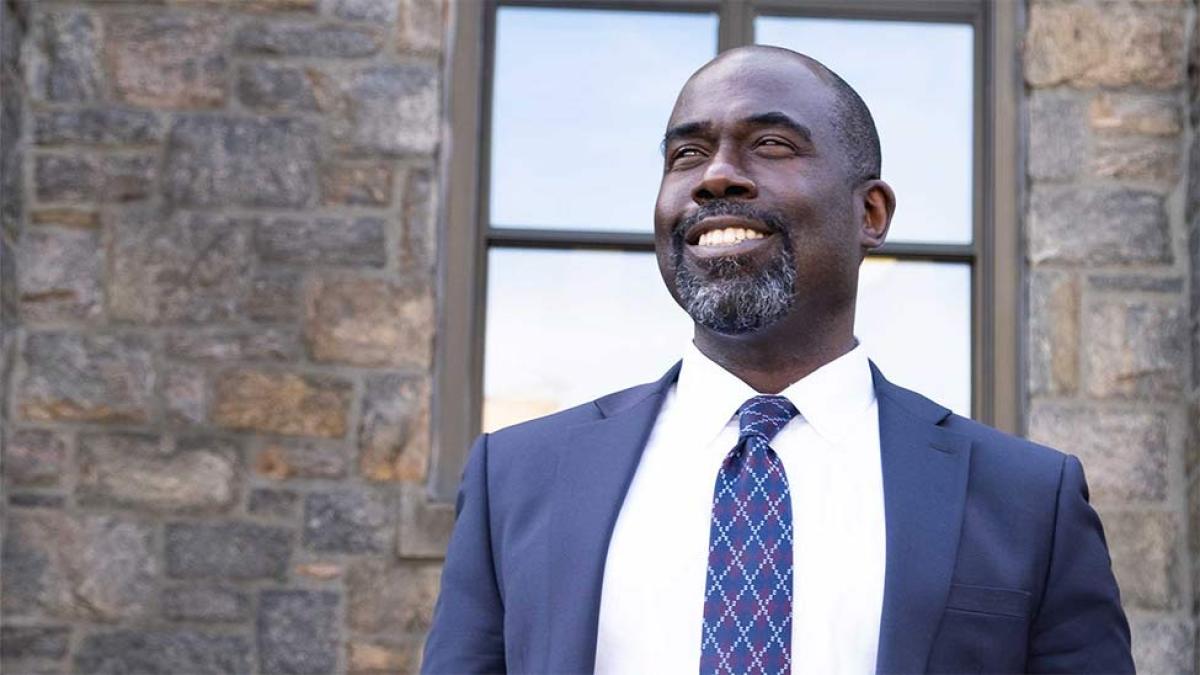
“On any given day, my mom and dad might’ve been studying for an exam, attending parent-teacher conferences, or writing a research paper—all while working full-time and getting three meals on the table,” says Horace E. Anderson Jr., JD, the newly-appointed Dean of the Elisabeth Haub School of Law. “It couldn’t have been easy, but they were our example. That might be why my three sisters and I have 11 degrees between us.”
For Anderson, whose parents immigrated to the US from Jamaica more than 50 years ago, the opportunity that education provides is unparalleled and deeply personal.
"I got a great sense of what opportunity really means from my parents."
“I have an appreciation for what it means to pursue the American Dream—why people do it, why it’s so important, why it makes this country so different from others,” he says. It’s this insight that enables him to support and guide the students at Haub Law, many of whom are the first in their families to go to law school.
“I always tell the students ‘I’m your uncle, the lawyer,’” he says. “If you don’t have anyone in your circle who can give you the inside scoop, I’ll be that person for you.”
Producing Emmy-Nominated Success
Actress and producer Kathleen Simmonds ’16, MFA Acting, is having a moment. On September 24, she will find out if her work wins a 2019 Emmy Award. Simmonds served as line producer for the Netflix documentary Reversing Roe, from Break Thru Films. Nominated for both Outstanding Politics and Government Documentary and Outstanding Research, it’s a deep, unrestrained look at abortion and women’s rights in America, and Simmonds has adopted the same no-holds-barred approach in her own life.
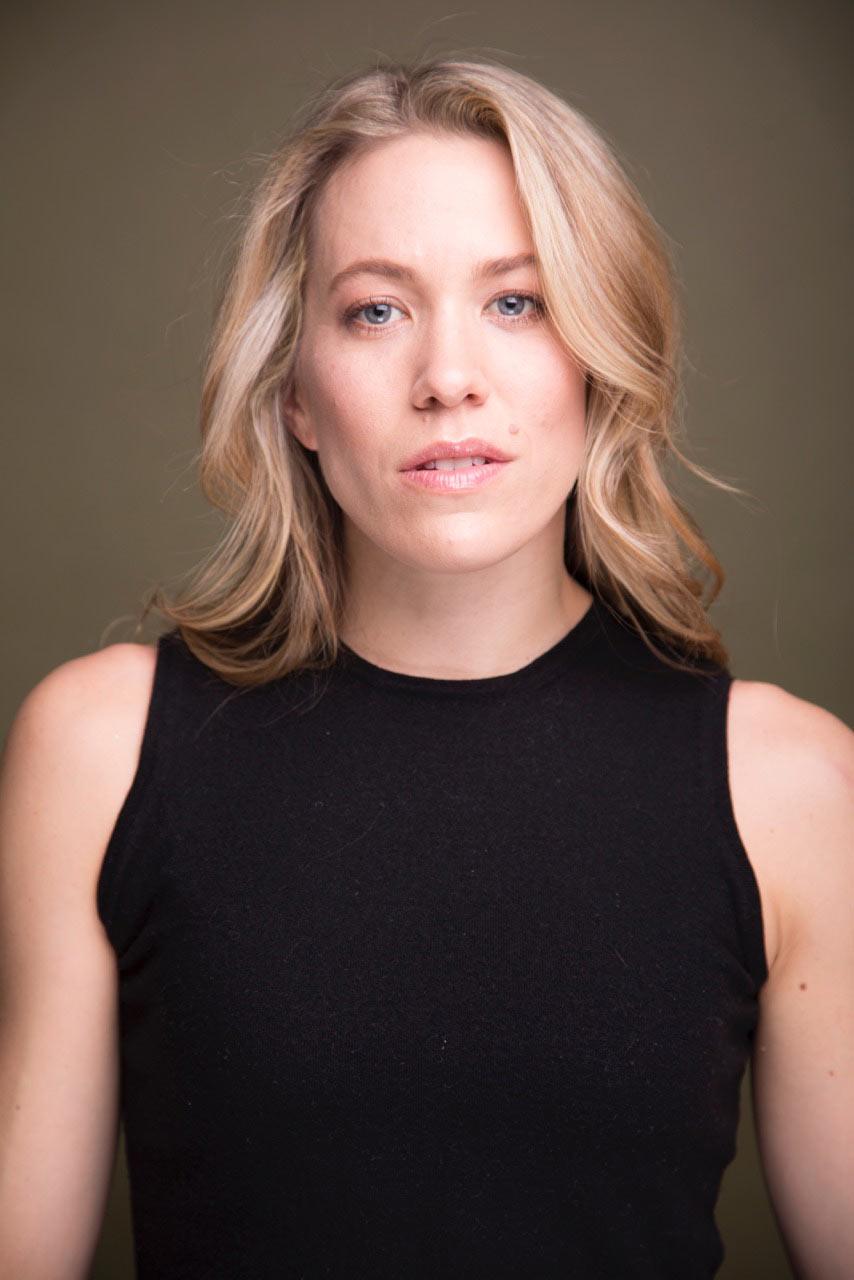
Actress and producer Kathleen Simmonds ’16, MFA Acting, is having a moment. On September 24, she will find out if her work wins a 2019 Emmy Award. Simmonds served as line producer for the Netflix documentary Reversing Roe, from Break Thru Films. Nominated for both Outstanding Politics and Government Documentary and Outstanding Research, it’s a deep, unrestrained look at abortion and women’s rights in America, and Simmonds has adopted the same no-holds-barred approach in her own life.
Born and raised in Australia, Simmonds was working as a corporate attorney at a top-tier law firm when, after six years, she decided she’d had enough.
“I packed three suitcases and flew to New York City to become an actress,” says Simmonds.
She had fantasized about becoming an actress since childhood, when she studied dance and drama at a prestigious performing arts academy. Through her training at the Actors Studio Drama School (ASDS), she was able to fully develop the tools needed to become a professional in the world of entertainment.
“My ASDS teachers opened my eyes to a bigger world, one where I can tell stories and help audiences to reflect on their lives in a more meaningful way,” says Simmonds. “I have found that my greatest successes have come from staying true to myself and only choosing projects that I have a deep personal connection to, and feel like I am making a meaningful contribution to society.”
As a member of Break Thru Films’ core production team, she has worked on several projects for HBO, Amazon, Netflix and Sundance with Reversing Roe filmmakers Annie Sundberg and Ricki Stern, including MARATHON: The Patriots Day Bombing, which tells the story of the terrorist attack at the 2013 Boston Marathon through the stories of several survivors.
Reversing Roe premiered at last year’s Telluride Film Festival, and as line producer, Simmonds was generally responsible for the financial aspects of the production. “I sometimes describe my job as a ‘bad cop’ because I often have to deliver bad news to the directors and other producers about curbing a creative decision because the budget won't allow it,” says Simmonds. “Mostly, I try my best to make everyone's dreams happen within the budget we have.”
Whether or not Reversing Roe ultimately wins an Emmy, Simmonds herself is going places. A limited series that she produced, The Preppy Murder: Death in Central Park, will premiere on AMC and The Sundance Channel in November. In addition, a new web series that she co-produced—and stars in—with Stephanie Fagan ’16, MFA Acting, and Chelsea B. Lockie ’16, MFA Directing, will be released later this year. Woe Is She is a dark comedy about the daily experience of living with and overcoming depression as a woman.
For now, though, Simmonds is focusing on the present and enjoying the current success of Reversing Roe.
“Every member of our team was very hands-on from the beginning, Simmonds says. “We are very honored to have our hard work recognized.”
Pace University Announces New Members To The Board Of Trustees

Leaders in tech, media, and the nonprofit sector join board
NEW YORK (February 26, 2020) – Pace University’s Board of Trustees announced the election of three new board members. They include Peta-Gay Clarke (Seidenberg School of Computer Science and Information Systems)’15 of Google, Michael A. Clinton (Pace’s Lubin School of Business) ’83 of Hearst Magazines, and Eugene M. Tobin, PhD, of The Andrew W. Mellon Foundation.
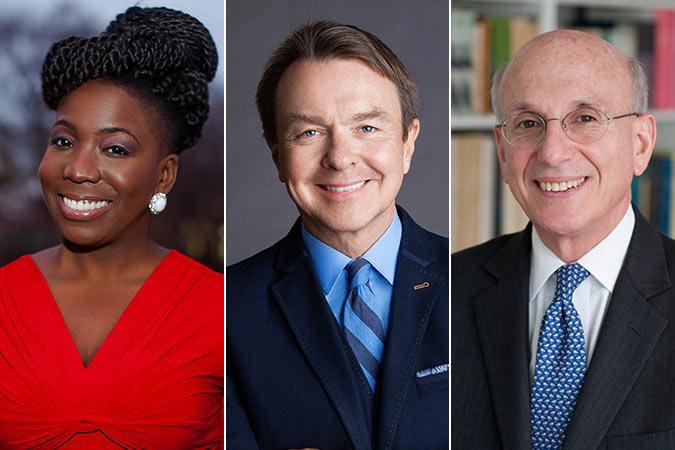
About the new board members
Peta-Gay Clarke is a Diversity Manager and the Program lead for Code Next at Google, where she works to improve diversity and inclusion in tech. She joined Google in July 2015 first as a community manager before moving to her current role in September 2018. In addition to her work at Google, Peta serves as an Adjunct Professor at Pace University, teaching courses in the Seidenberg School of Computer Science and Information Systems. Clarke has been a volunteer with Black Girls CODE (New York Chapter) and the New York City Department of Education where she worked with the city’s mentoring program. Clarke received her master’s from Pace University’s Seidenberg School of Computer Science in 2015.
“Peta-Gay earned her master of science at Pace only a few years ago, but she has accomplished great things since her graduation, now working at Google to lead a computer science education program for black and Latinx high schoolers,” said Mark Besca, chairman of Pace’s Board of Trustees. “We’re happy that she wants to give back to Pace and bring her expertise in computer programming, education, and advocacy to our board.”
Clarke said, “When I came to Pace I was a single parent, working full-time looking for a flexible learning environment and Pace offered that and so much more. I found the community at Pace to be supportive and exceptional. I was always presented with growth opportunities and given the agency to explore them. I’m honored and excited to give back in my new role as a member of the Board of Trustees.”
Michael A. Clinton is senior media advisor at Hearst Corporation. He spent 40 years in the publishing industry, serving in leadership roles at Hearst and Conde Nast. Clinton retired from his role as president of marketing and publishing director of Hearst Magazines in December 2019. Prior to this, he was the executive vice president, chief marketing officer, and publishing director of Hearst Magazines, a position he held since October 1997. Clinton is the founder and president of Circle of Generosity, a nonprofit organization that delivers random acts of kindness to individuals and families in need. He earned his bachelor’s degree from University of Pittsburgh, received his master of business administration from Pace’s Lubin School of Business in 1983 and received an honorary doctorate from Pace University. Clinton is working on another master’s degree from Columbia University in nonprofit management.
“Michael is a proud Pace alumnus, a seasoned media executive, and has long been devoted to serving the University,” said Mark Besca, chairman of Pace’s Board of Trustees. “As he turns his primary focus to philanthropy, including the Circle of Generosity that he founded, we’re pleased that the Pace board will be a recipient of his time and wisdom.”
Clinton said, “As a firm believer in the power of education to transform lives, I’m thrilled to be joining Pace University’s Board of Trustees. My MBA from Pace provided me with an important toolkit that helped propel my career. I look forward to giving back and guiding the institution, because education is a lifelong journey and Pace has so much to offer.”
Eugene M. Tobin, PhD, is a retired senior program officer at The Andrew W. Mellon Foundation in the program for Higher Education and Scholarship in the Humanities. Prior to his work at the foundation, Tobin spent 23 years at Hamilton College as a faculty member, department chair, dean of faculty, and as president. Tobin serves as a Trustee on the Board of The Swedish Program in Organizational Studies and Public Policy at Stockholm School of Economics. He received his bachelor’s degree from Rutgers University and his master’s and PhD in the History of American Civilization from Brandeis University.
“Gene’s expertise in guiding higher education institutions is nearly unmatched,” said Mark Besca, chairman of Pace’s Board of Trustees. “He brings a wide range of perspectives to our board, from his work as a scholar, at the Mellon Foundation, and at Hamilton College, where he served as president, and we’re very lucky to be able to benefit from his experience.”
Tobin said, “I am honored to join a thriving university community that embraces access, diversity, and inclusion as the keys to intergenerational mobility. Pace has a distinguished history of expanding opportunity and ensuring financial affordability for generations of traditional and returning students. I look forward to working to assure that Pace has the resources to maintain academic quality, increase educational attainment, shorten time to degree completion, and continue to reduce disparities in outcomes by race and socioeconomic status.”
About Pace University
Pace University has a proud history of preparing its diverse student body for a lifetime of professional success as a result of its unique program that combines rigorous academics and real-world experiences. Pace is ranked the #1 private, four-year college in the nation for upward economic mobility by Harvard University’s Opportunity Insights, evidence of the transformative education the University provides.
From its beginnings as an accounting school in 1906, Pace has grown to three campuses, enrolling 13,000 students in bachelor’s, master’s, and doctoral programs in more than 150 majors and programs, across a range of disciplines: arts, sciences, business, health care, technology, law, education, and more. The university also has one of the most competitive performing arts programs in the country. Pace has a signature, newly renovated campus in New York City, located in the heart of vibrant Lower Manhattan, next to Wall Street and City Hall, and two campuses in Westchester County, New York: a 200-acre picturesque Pleasantville Campus and the Elisabeth Haub School of Law in White Plains.
